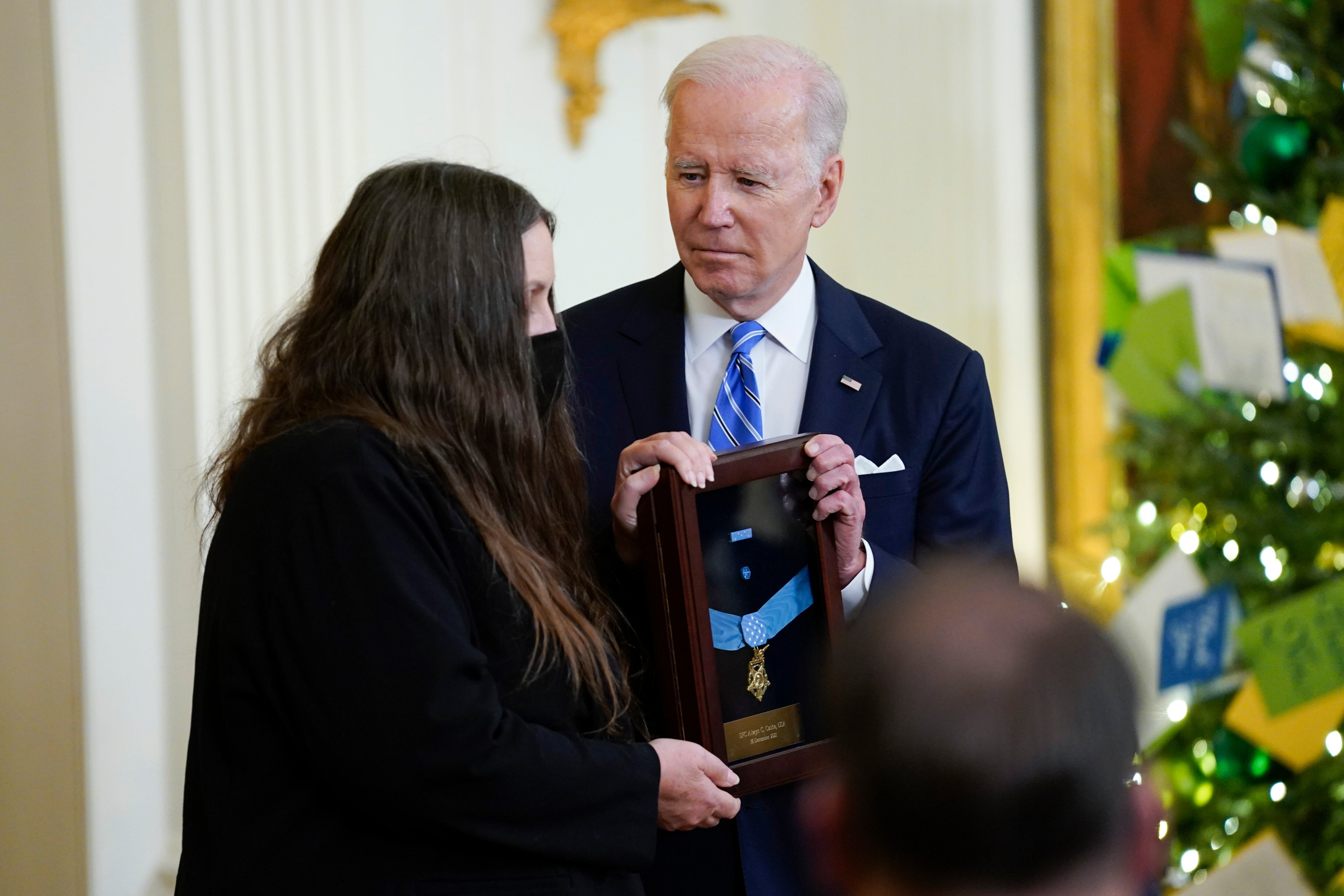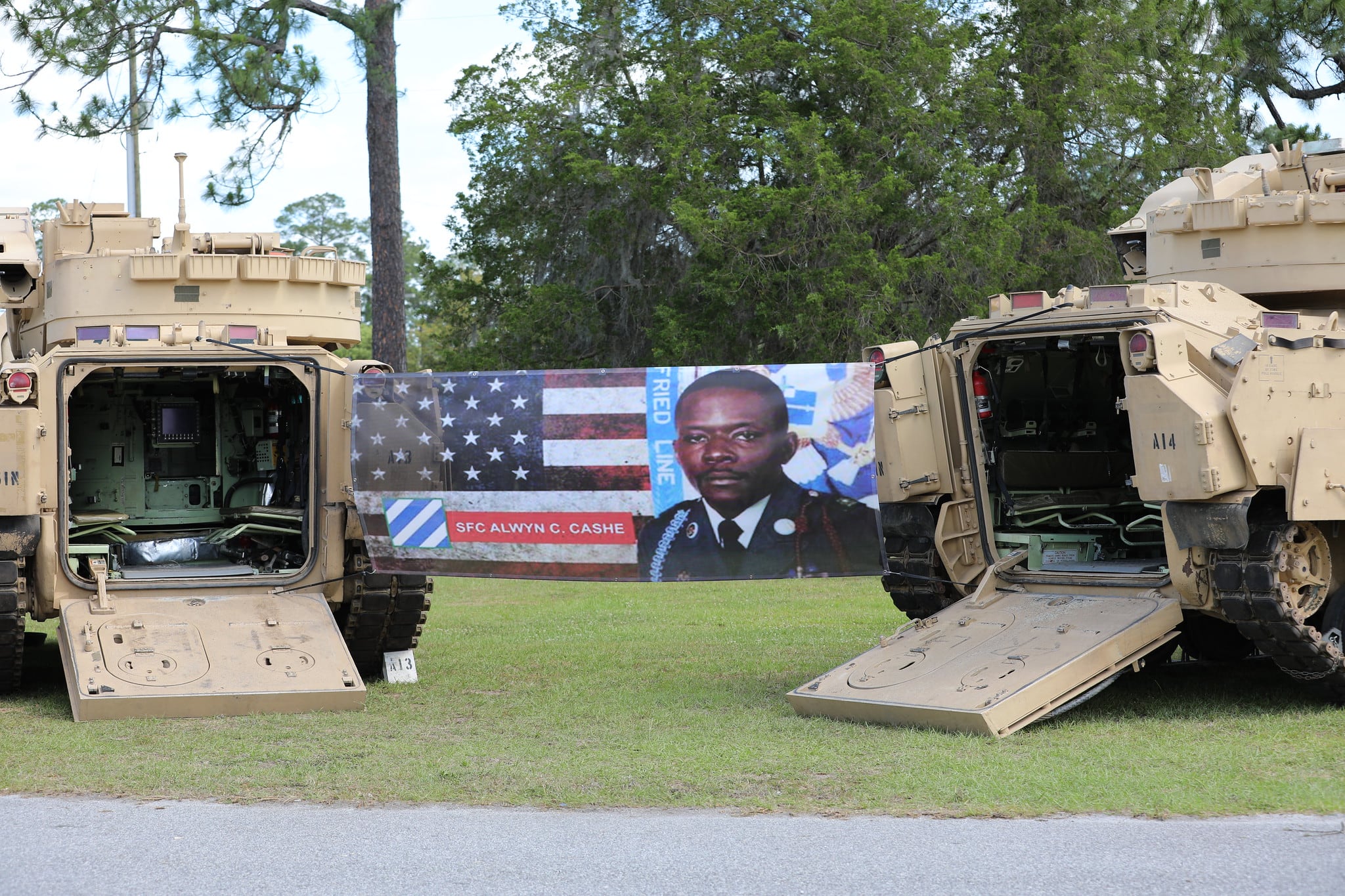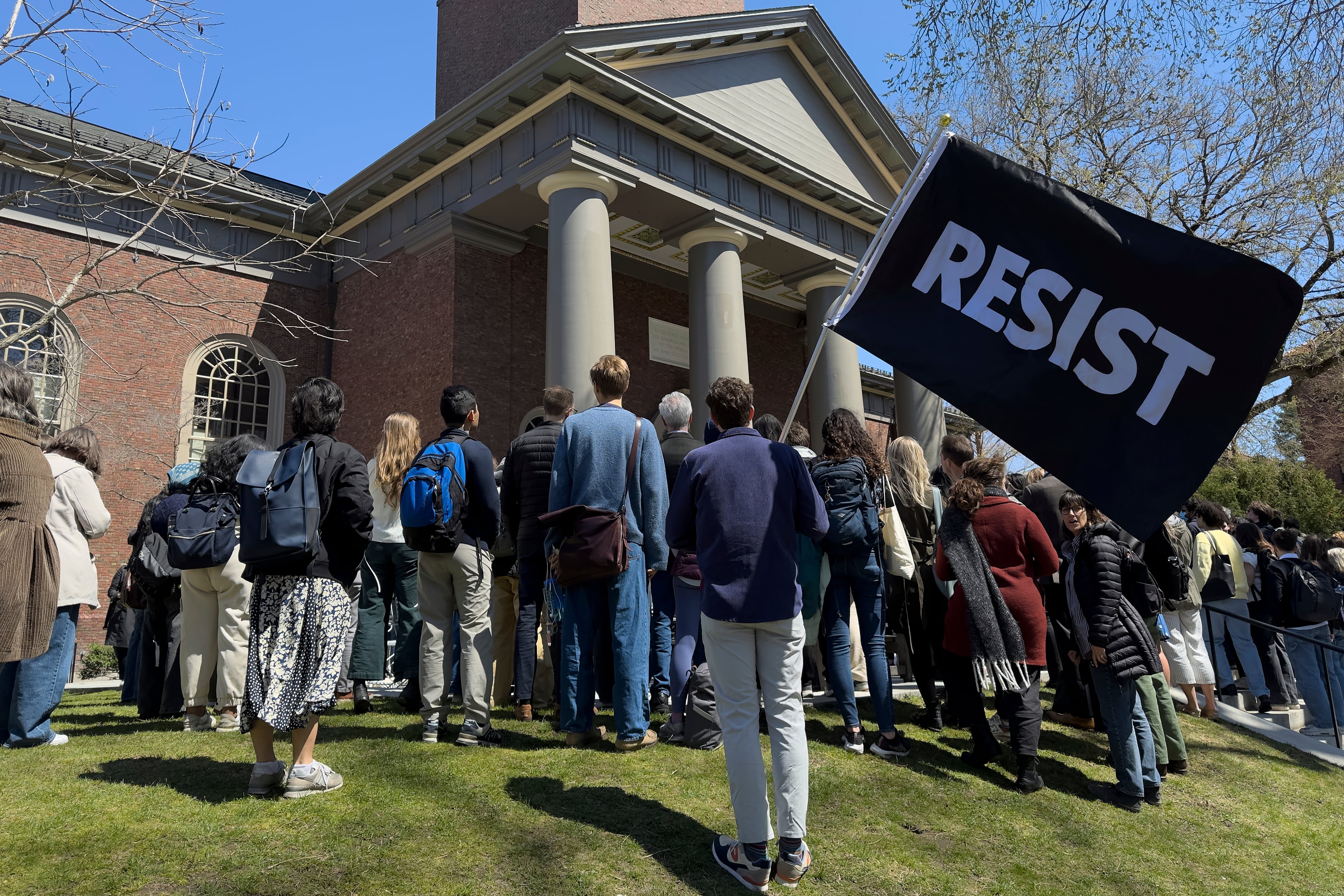Will Fort Benning, Georgia, soon be called Fort Cashe? At least one lawmaker hopes so, as she advocates for the name change to honor posthumous Medal of Honor recipient Sgt. 1st Class Alwyn Cashe.
The suggestion comes as the Naming Commission, which is charged with renaming military sites that currently honor Confederate leaders, develops a renaming plan that must be delivered to Congress by Oct. 1, 2022. The secretary of defense will implement the plan by Jan. 1, 2024.
In a Wednesday letter to the commission, Rep. Stephanie Murphy, D-Fla., wrote that renaming Fort Benning in honor of Cashe will fulfill the objectives laid out in the 2021 National Defense Authorization Act. Murphy’s congressional district includes the town where Cashe grew up.
The 2021 NDAA required the Defense Department to establish a bipartisan commission to rename nine Army installations, including Fort Benning.
The Naming Commission has indicated that the new installation names “should appropriately reflect the courage, values, and sacrifices of our diverse military men and women, with consideration given to the local or regional significance of names and their potential to inspire and motivate our service members.”
Cashe has a history in the greater Fort Benning area, serving as a drill sergeant at the post before becoming a platoon sergeant in 3rd Brigade, 3rd Infantry Division, Murphy’s letter explained.
Before his final fateful deployment, Cashe purchased a house in nearby Columbus, intending to live there upon his return. Currently, Cashe’s widow and daughter reside in the same house, according to Murphy’s letter.

Additionally, Murphy wrote that a potential Fort Cashe will “appropriately reflect the courage, values, and sacrifices of the U.S. military,” as Cashe sacrificed his life to save those of his soldiers.
On Oct. 17, 2005, near Samarra, Iraq, Cashe’s Bradley Fighting Vehicle was engulfed in flames and disabled after it was struck by an improvised explosive device and small-arms fire. Disregarding his own safety, Cashe immediately began pulling his soldiers from the burning vehicle.
As Cashe pulled the driver to safety, his fuel-soaked uniform caught on fire. Ignoring the flames, Cashe — now on fire and under enemy fire — moved to the rear of the Bradley, where he opened the troop door, allowing four more soldiers to escape.
Cashe then noticed two additional soldiers were missing. Despite burns on three-quarters of his body, Cashe again returned to the Bradley to retrieve them. With all soldiers accounted for and medical evacuation helicopters on the scene, Cashe placed himself last in line for evacuation, insisting that his injured soldiers go first.
Ultimately, Cashe retrieved six soldiers and an Iraqi interpreter from the burning Bradley. And he succumbed to his wounds on Nov. 8, 2005.
Cashe was posthumously awarded the Medal of Honor in December, more than 16 years after his actions in Iraq. He is the first African American to receive the medal since Vietnam.
“Cashe is a legend in military circles, beloved in life and revered in death, a hero in the purest sense of the term,” Murphy wrote. “I believe he would be an honorable and unifying choice and hope you will consider recommending him in your report to Congress.”
James R. Webb is a rapid response reporter for Military Times. He served as a US Marine infantryman in Iraq. Additionally, he has worked as a Legislative Assistant in the US Senate and as an embedded photographer in Afghanistan.




